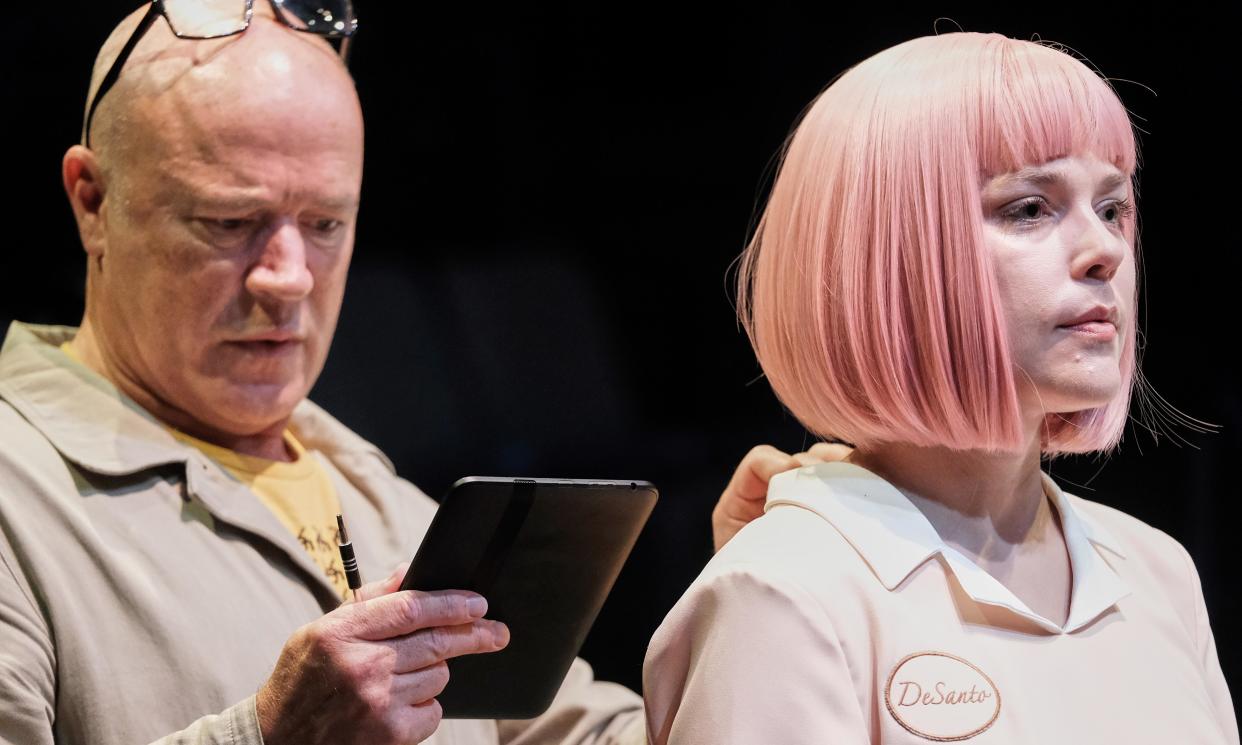Constant Companions review – Ayckbourn’s sex robots show our need for messy humanity

On one level, Alan Ayckbourn’s zesty new play is like a comic version of Humans, the Channel 4 drama series exploring the moral complications of keeping sentient machines in the house. There are robot-human love affairs and questions about robot rights. Ayckbourn even has a joke about an anti-android pressure group, one of the programme’s central strands.
Set “some time to come” – and then some decades after that – Constant Companions has fun imagining the hazards of malfunctioning sex robots, misbehaving eco-domestic auto-maids and human-like lovers who never grow old. All it takes is a tweak of an empathy algorithm and a soulless automaton becomes a sexually desirable catch – albeit one with an erratic sense of humour.
That is true for Lorraine (Alexandra Mathie), a high-flying lawyer who trades her selfish husband for JAN 60 (Richard Stacey), the office’s robot janitor, hilariously deadpan with his bird-like head movements and pre-programmed small talk.
It is equally true for Winston (Leigh Symonds), an engineer who is hoodwinked by ED (Naomi Petersen), an android who can dissemble and seduce, even if she can’t override the setting to curtsy every time she speaks the name of her owner, Mrs De Sousa (Tanya-Loretta Dee).
As these parallel stories play out, we see Ayckbourn operating on a second level. Like all good science fiction, Constant Companions is less about the future than the present and, in his jokes about machine logic and human contrariness, and behind his speculation about a robot class outliving the species that created it, Ayckbourn asks his deepest questions about human companionship and sexual desire.
Like lonely bachelor Don (Andy Cryer), we might dream of a bed-mate so amply proportioned she can’t get out of the bathroom. Like Lorraine, we might long for a partner who acquiesces to every absurd argument we make. Like Winston, in a desperately tender performance by Symonds that is closest to the play’s emotional heart, we might imagine a robot who could reignite some long lost youthful romance.
In reality, what we need, whether we realise it or not, is messy humanity; not an idealised automaton but a complex mix of failure, vulnerability and contradiction. The machines might take over, Ayckbourn seems to say, but they will never replace the things that make us love and laugh.
At Stephen Joseph theatre, Scarborough, until 7 October. Then at the Old Laundry theatre, Bowness-on-Windermere, 17–21 October, and the New Vic theatre, Newcastle-under-Lyme, 24 October–4 November.


